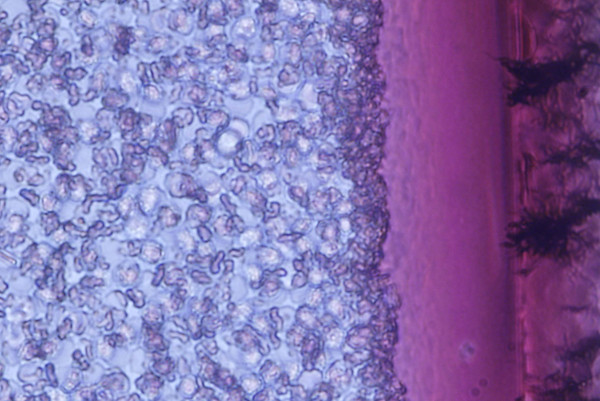Butoh Encounters is a dynamic and innovative creative platform that fuses art, science and technology to investigate the future of the human condition. Initiated by Karolina Bieszczad-Stie in 2017, the platform creates performative and collaborative projects that examine the body in a variety of forms, ranging from non-biological to hybrid to non-permanent, connecting previously isolated ways of thinking and working.

Butoh Encounters represents a paradigm-shifting approach that goes beyond the creation of full-scale dance productions. Karolina's focus on process, research, and multi-format public engagement enables her to create contexts that offer audiences new perspectives on dance and prompt contemplation of current and future social dilemmas from fresh angles. She raises thought-provoking questions such as what kind of bodies will we inhabit in the future, how will they move and relate to the new environment, and will there be multiple human species with different bodies, and how will they communicate and dance together? She explores possible answers to these questions by artistic research processes, collaborative actions, exchange with audiences via dance productions and after-show talks, written texts, video work and online engagements.

At the core of Karolina’s projects, Butoh - the Japanese avant-garde dance - serves as a concept around which absurdity, paradox, grotesqueness, and the method of working with the flexible and "intangible" body revolve. She often works with Japanese Butoh dancers, such as Yoshito Ohno, Saga Kobayashi, Yumiko Yoshioka, Yuko Kaseki and Azumaru, as well as with non-human dancers, including cancer cells or the industrial robot iiwa.

With a PhD in Performing Arts from Brunel University in London, Karolina's academic research led her to transhumanism, introduced by Professor Stelarc, her doctoral thesis examiner, who inspired her creative search for alternative futures. Her practice is driven by curiosity as well as the wish to redefine the existing ways of choreographing and dancing as they may no longer apply to the future Homo Evolutis - a term coined by Juan Enriquez that describes new species of human, resulting from evolution driven by human choice with the use of AI, genome editing or body extensions.

Karolina's tentative future vision is that of a choreographer and dancer whose skills are transferable to find solutions to problems in other fields, including science and technology. She imagines a non-dystopian alternative future for them where their expertise in body movement is crucial for a trans-disciplinary and transhuman society as they help to form and foster relations and communication between different future species.
